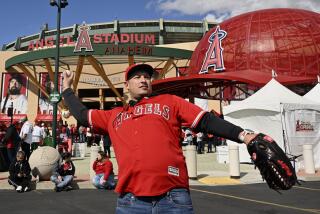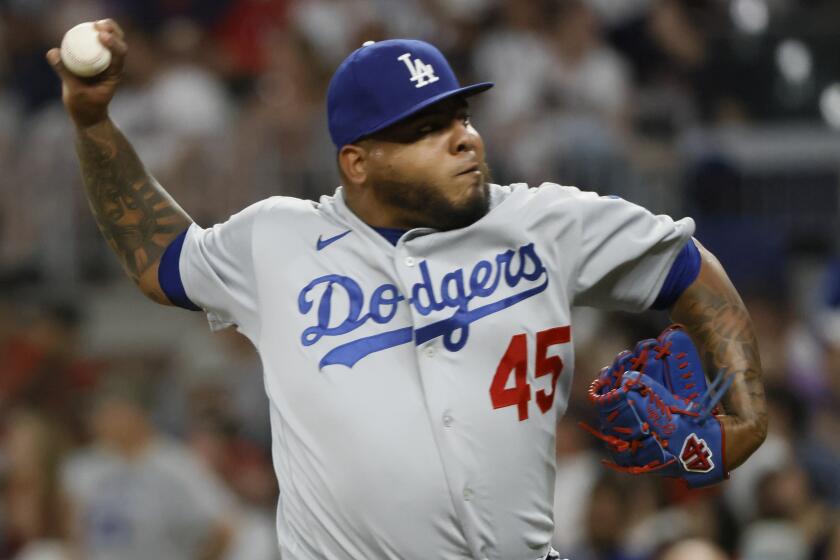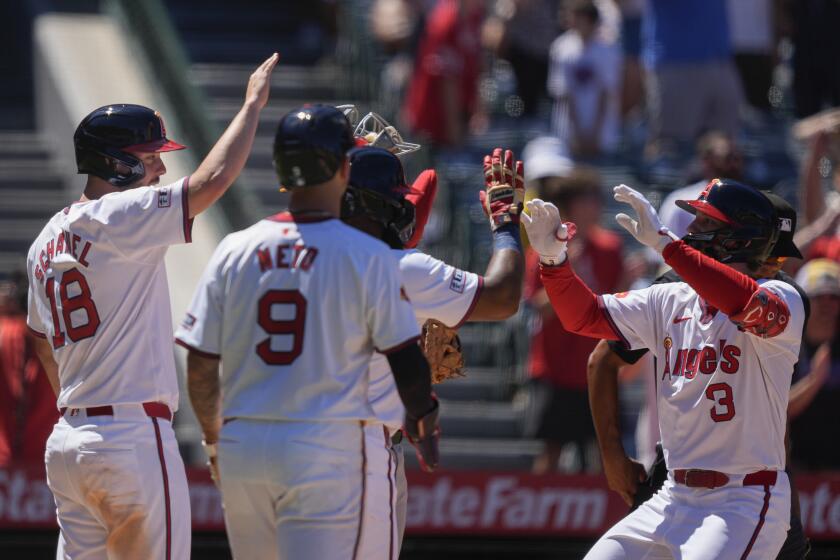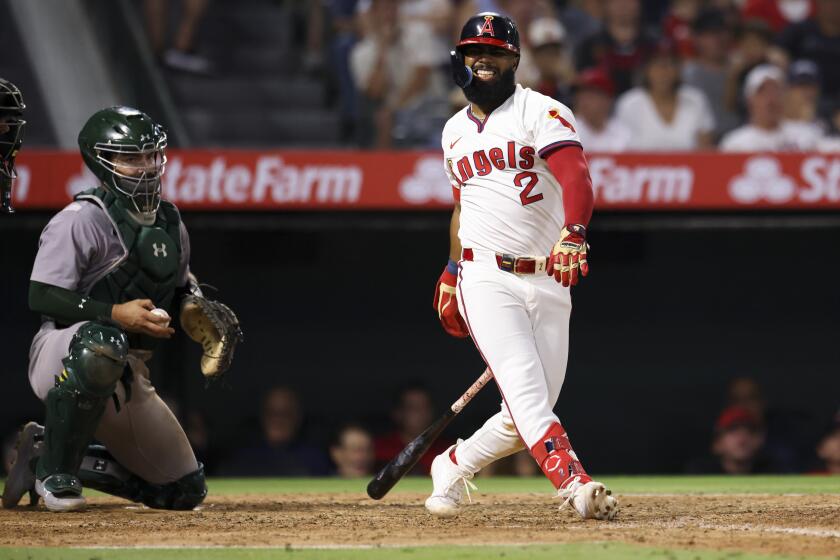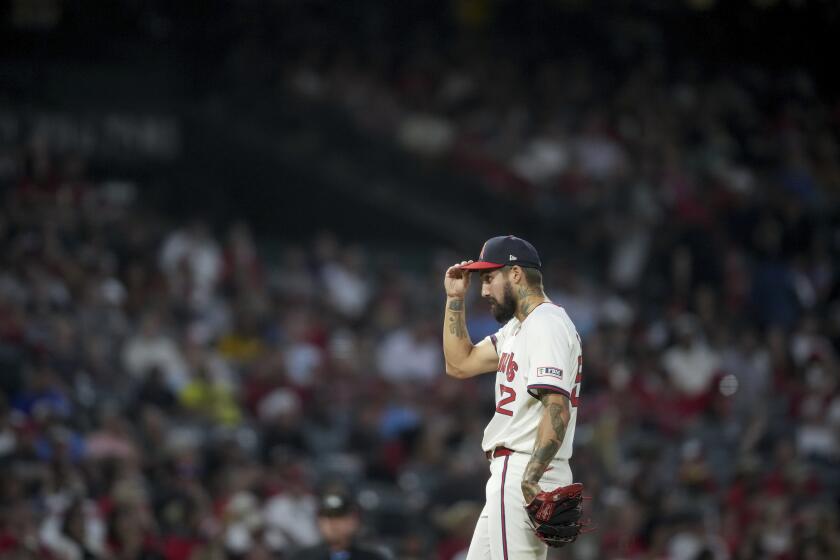Murray in Blue Mood After His Release From Angels
The bag bore the logo of the Anaheim Angels. The bag was in Eddie Murray’s clubhouse stall. The stall was in Dodger Stadium.
If something seems a little odd about that combination, it’s because there’s something odd about the whole saga of Eddie Murray’s return to action Friday night. The Dodgers and Angels are both involved in pennant races although in the Angels’ case their involvement is quickly slipping into the past tense. Neither has time for sentiment, yet the Dodgers somehow had room for Murray. And Murray responded by showing that sometimes the moves that make common sense also make business sense.
When the Angels acquired Rickey Henderson last month they decided to release Murray, even though it could have meant an unceremonious end to a 21-year career that produced more than 3,000 hits and 500 home runs and placed his name among the game’s greats. There were other options, such as sending pitcher Greg Cadaret back down to the minors, but instead they cut Murray loose. Just business.
But business is also about relationships, and apparently Dodger General Manager Fred Claire cultivated a pretty good one with Murray when Murray was with the team from 1989 to 1991. Why else would Murray consent to a noninjury related stint in the minors after 21 years in the big leagues? Why else would he come into a league without a designated hitter, knowing the only chance he’ll get to play is the occasional pinch-hitting opportunity?
“Fred Claire asked me to come back,” Murray said. “That’s why I’m here.”
“Here” is that locker-room stall in Dodger Stadium, after signing a minor league contract with Dodgers on Aug. 20 and joining triple-A Albuquerque. He was called up last week. Every so often things all come together, allowing professional objectives and personal feelings to share the same place at the same time. That’s what happened when Murray came to the plate for his first at-bat with the Dodgers in the seventh inning of their game with the Florida Marlins Friday night. The crowd gave him a standing ovation.
It wasn’t applause for a guy who hit .219 in 46 games with the Angels this year. It was for all of his accomplishments in 21 years of baseball. It was an ovation because there won’t be many other chances to give him one. Surely the Anaheim Stadium fans would have given him a standing ovation if they had the chance. After all, they once gave him a standing O when he was with the Orioles and hit three home runs at the Big A in 1985. But they never got the opportunity. He was cut in the middle of a trip.
Murray appreciated the warm outpouring, but admitted that it made him feel a little awkward.
“You don’t want to be standing up there tipping your hat and the [pitcher’s] holding the ball,” Murray said.
Murray responded the best way he could, with a base hit that drove in two runs, pushing the Dodgers from a one-run lead to a three-run advantage that was enough to feel comfortable about even with Todd Worrell on the mound in the ninth.
Surprisingly, after 11,000 at-bats, Murray still is learning. He got some tips on his batting stance from Wayne Kirby, and he learned a trick of pinch-hitting is to sneak down to the clubhouse to catch a glance of the opposing pitcher on TV and get a better view of what he’s throwing. It’s not that Murray has never been receptive to comments.
“Sometimes I think that people might be afraid to say something,” Murray said.
Would you want to walk up to him and point out his flaws?
His late-career adaptations show that he is here for a reason, not just for some farewell tour. Yet, even though Murray quickly dismisses any talk of the subject, he also must want to end his career on a more fitting note.
Todd Zeile won’t go so far as to say he’s close with Murray--I wonder how many players are?--but as a teammate of Murray’s for the stretch run in Baltimore last year, he knew him well enough to figure that Murray’s pride wanted another shot at a real goodbye, not an end recorded as a transaction in agate type. And as a ballplayer, Zeile’s first thoughts when he saw the Angels released Murray were that the Dodgers could use him.
If only for one game, Zeile was right. Fred Claire was right. And the Angels were wrong.
More to Read
Go beyond the scoreboard
Get the latest on L.A.'s teams in the daily Sports Report newsletter.
You may occasionally receive promotional content from the Los Angeles Times.
